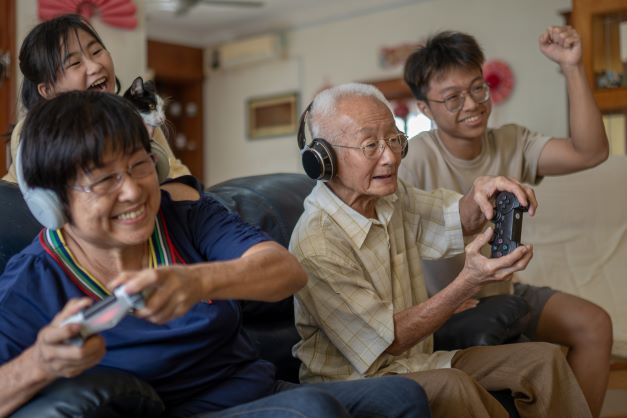How Cognitive Reserve Can Protect Against Dementia
July 26, 2022 | Alzheimer's and Other Dementias, Mental Health

An important part of our overall resilience in life—our ability to cope with and survive great challenges—is our cognitive reserve.
“Cognitive reserve is the idea of building up additional abilities to compensate for the possibility of declining memory or thinking,” explains Esther Heerema, MSW, who works with people living with Alzheimer’s and other dementias. “Think of it as over-training to run a race.”
Heerema compares building up cognitive reserve to the way runners prepare for a race by running more than they will need to on race day. “In the same way,” she explains, “you could build up your cognitive reserve by keeping your brain active through mental exercises, social interaction, and other brain-stimulating activities like cognitive training.”
Heerema’s work with Alzheimer’s patients and her expertise in cognitive reserve overlap because it’s believed that the more cognitive reserve someone has, the better they are protected against Alzheimer’s. Nothing has yet proven that cognitive reserve entirely prevents Alzheimer’s, but some studies have shown that it delays the onset.
One example comes from Harvard Health Publishing, describing research into brain autopsies of people who had no apparent symptoms of dementia but whose autopsies showed “brain changes consistent with advanced Alzheimer’s disease.” The article adds, “These individuals did not show symptoms of the disease while they were alive because they had a large enough cognitive reserve to offset the damage and continue to function as usual.”
How to build your reserve

Just as we are advised to keep our bodies moving to ensure our physical resilience, scientists advise us to keep our brains moving to build our cognitive reserve. Speaking more than one language and having higher education, for example, have been shown to contribute to cognitive reserve. Here are some other ways you can build your cognitive reserve—at any age:
- Participate in social activities—clubs, outings, book groups, etc.
- Travel to new places or visit local places you’ve not seen yet.
- Learn a new hobby—almost anything will help, from knitting to woodworking.
- Do volunteer work.
- Play card games or other games involving strategy.
- Use a computer—for example, to take an online class.
You’ll notice that some of these activities involve being with other people. That’s because loneliness and isolation have been shown to lower our mental and emotional resilience and hence our cognitive reserve. “Engaging in more of these activities leads to higher levels of overall cognitive reserve and a greater reduction in dementia risk,” said Betsy Mills, Ph.D., of the Alzheimer’s Drug Discovery Foundation.
Researcher Judy Pa, PhD, of the University of California, San Diego, states a cold reality about dementia: “We have arguably few to no effective treatments for Alzheimer’s disease,” she notes. “To know that people could potentially improve their cognitive reserve by taking simple steps such as going to classes at the community center, playing bingo with their friends or spending more time walking or gardening is very exciting.”

